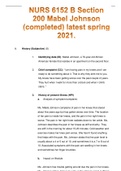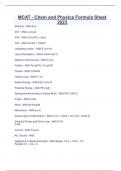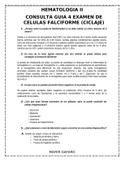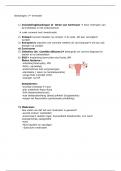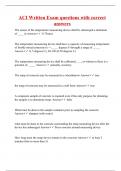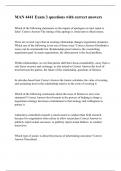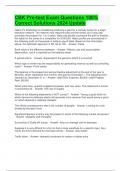Solutions
Keel - Ans A projecting strip along the bottom of the canoe, on the outside, to cut down slide
slipping.
Haystacks - Ans Large standing waves which accompany deceleration of a current
Ledge - Ans The exposed edge of a rock stratum which acts as a natural low dam, or as a series
of such dams.
Lining - Ans The use of ropes to work a boat down stream from the shore.
Non-power face - Ans The face of the paddle blade, opposite the power face
Painter - Ans A line attached to bow or stern of a boat
Pitch - Ans A section of a rapid usually steeper than the surrounding section; a drop
Pool - Ans A river section slower and deeper than surrounding sections
Power face - Ans The face of the paddle blade which bears against the water in a normal
forward stroke
Rapid - Ans A section of a river characterized by steepening gradient, increased water, speed,
obstructions and turbulence.
Riffle - Ans A section of a river, shallower than usual, in which small waves are noticeable, often
over a gravel or sand bottom.
,Rocker - Ans The longitudinal curvature of the bottom at the center line of the hull.
Setting - Ans Ferry with bow down stream: largely an eastern term
Sheer - Ans The upward curve of the sides of the hull from amidships to the ends
Throat - Ans The section of a paddle shaft just above the blade
Thwarts - Ans Transverse braces, from gunwale to gunwale, in a boat.
Trim - Ans The angle to the plane of the water at which the boat rides, for instance, down at the
stern, down at the bow, or trimmed even (dead level)
Tumble home - Ans An i curving in cross section from the bilge to the gun whale
Wet suit - Ans A close fitting garnet of neopren sponge which affords thermal insulation in cold
water
White eddy - Ans An area below a ledge or boulder over which water is flowing, characterized
by a highly aerated backflip at the surface.
Beam - Ans The transverse measurement at a boats widest part
Bilge - Ans In the cross section of a hull the point of greatest curvature between the bottom and
the side
Broaching - Ans The turning broadside of a boat due to action of different currents at bow and
stern: sideways against a rock
,Channel - Ans A canoeable through river section
Chute - Ans A channel through a gap or drop in a rapid, steeper and faster than the surrounding
water.
Deck - Ans On a traditional canoe, the triangular piece of wood to which the gunwhales attach
at their ends. In a whitewater canoe or kayak, a covering for the entire hull to prevent entrance
of water
Dry pack - Ans A waterproof pack which is carried in the boat in white water
Ferry - Ans A maneuver to move laterally across a current by paddling upstream either
backward or forward, and at an angle to the current
Black (map color) - Ans man made
Green (map color) - Ans vegetation over 6 feet
White (map color) - Ans vegetation under 6 feet
Blue (map color) - Ans water
Brown (map color) - Ans contour lines
Red (map color) - Ans major roadways
Purple (map color) - Ans new additions
, Beam (map color) - Ans the transverse measurement at a boat's widest part
Bracing stroke - Ans any of several paddle strokes providing stability against the capsizing force
of a lateral current; may also be used for turning
Broaching - Ans the turning boatside of a boat due to the action of different currents at bow
and stern
Hanging strokes - Ans high bracing strokes, so called because the paddler hangs some of his
weight on the paddle held high
Heavy water - Ans the white water term for the phenomena of supernormal flow in a river,
characterized by high standing waves, fast currents, extreme velocity difference etc
Tumblehome - Ans an incurving in cross-section from the bilge to the gunwale; throws water
away from you
J-stroke - Ans forward stroke used in the stern to provide forward momentum; feathering the
stroke outward at the tail counteracts the off-center stroke and helps to maintain straight line
of travel
Draw - Ans side stroke used to pull canoe toward the paddle
Cross-draw - Ans used with draw strokes primarily from the bow in order to move the canoe
from side to side
Pry - Ans side stroke in the stern used both fro sideward movement and for turning; can be
used in bow but is not as powerful as the draw for side movement

